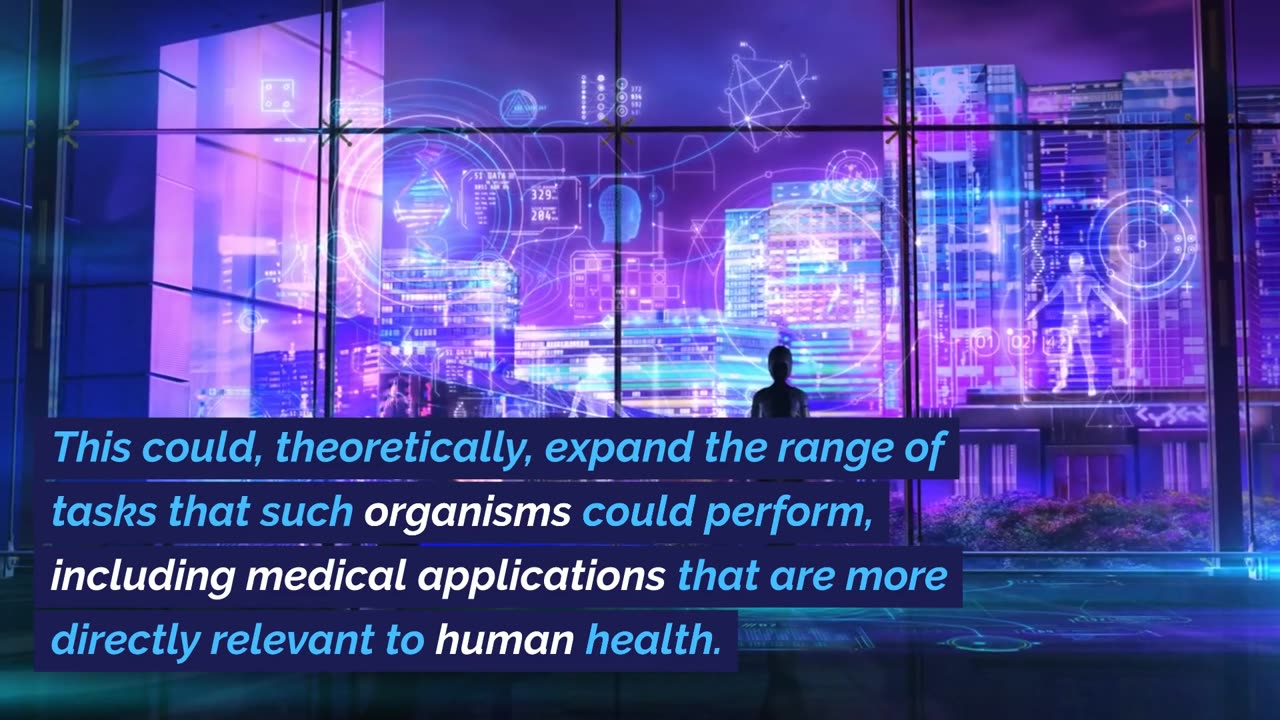Premium Only Content

Using human stem cells in the creation of xenobots
Using human stem cells in the creation of xenobots or similar synthetic organisms would introduce a new layer of complexity and ethical considerations. Here's how: Potential Applications: Human stem cells have the ability to differentiate into various cell types, which could allow for the creation of more complex and specialized structures. This could, theoretically, expand the range of tasks that such organisms could perform, including medical applications that are more directly relevant to human health. Ethical Concerns: The use of human stem cells in creating synthetic organisms would undoubtedly raise significant ethical issues. Concerns might include questions about consent (from whom the cells were taken and for what purpose), the moral status of the synthetic organisms, potential human-animal hybrid concerns, and the risks of unforeseen consequences. Regulatory Challenges: Human stem cell research is subject to stringent regulations in many jurisdictions. The creation of synthetic organisms using human cells would likely face substantial legal and regulatory scrutiny, and the development of appropriate guidelines would be a complex process. Scientific Challenges: Beyond the ethical and regulatory considerations, using human stem cells in this context would also pose significant scientific and technical challenges. Human cells function within highly complex and specialized environments, and replicating or controlling those environments outside the human body would be an intricate task. Potential Misuse: Like many powerful technologies, the creation of synthetic organisms using human stem cells could be subject to misuse. This might include the creation of organisms for harmful purposes or the use of the technology in ways that violate societal norms and values. Public Perception: There could be significant public resistance to the use of human stem cells in this way, rooted in both rational concerns and emotional reactions. This resistance could affect the funding, regulation, and social acceptance of the research. In summary, while the use of human stem cells in the creation of xenobots or similar synthetic organisms could open up new possibilities, it would also introduce significant ethical, legal, scientific, and societal challenges. Such an approach would likely require careful consideration, transparent public dialogue, and the development of clear ethical guidelines and regulatory frameworks. Global Robotics Corporation globalroboticscorp.com Please like, comment, share and subscribe
-
 1:26:06
1:26:06
MattMorseTV
16 hours ago $0.05 earned🔴Trump's Press Conference MASSIVE UPDATE.🔴
9.54K51 -
 21:39
21:39
Nikko Ortiz
3 days agoI Take A North Korean Shooting
44.4K8 -
 LIVE
LIVE
Lofi Girl
3 years agolofi hip hop radio 📚 - beats to relax/study to
189 watching -
 2:14:13
2:14:13
FreshandFit
14 hours agoShe Was Given Extravagant Gifts And STILL Friendzoned Him +EXPOSED
188K37 -
 1:16:07
1:16:07
Man in America
11 hours agoOperation Gladio: The CIA, Mossad & City of London’s Plan for a New World Order
25.5K28 -
 2:11:41
2:11:41
Badlands Media
13 hours agoDEFCON ZERQ Ep. 016: Shadow Governments, Ancient Tech & the Spiritual War for Humanity
81.9K59 -
 2:09:24
2:09:24
Inverted World Live
8 hours agoRats Have Learned to Hunt Bats | Ep. 135
31.2K15 -
 2:48:01
2:48:01
TimcastIRL
8 hours agoLIVE Election Coverage: Polling Stations SWATTED, Bomb Threats Called In | Timcast IRL
254K177 -
 3:30:07
3:30:07
Barry Cunningham
8 hours agoBREAKING NEWS: COUNTDOWN TO COMMUNISM! ELECTION RESULTS SHOW!
59.5K48 -
 2:11:28
2:11:28
DeVory Darkins
8 hours agoLIVE NOW: 2025 Election results and Exit Polls AMA
70K46